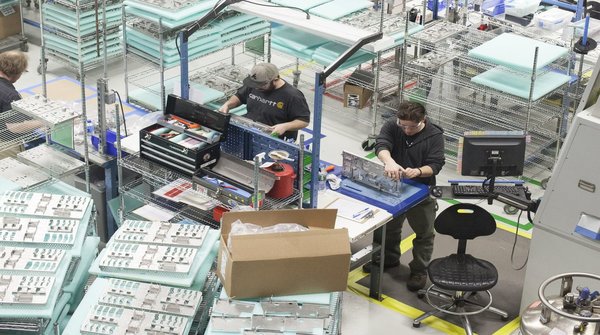Before the coronavirus jolted stock markets and global supply chains, U.S. small-business confidence was the highest it had been in more than a year. Now the question is whether that optimism can overcome the uncertainty created by the disease.
The fear of the infection spreading in the U.S. and elsewhere sparked last week a frenzied selling of stocks and buying of medical masks. Companies large and small, especially those that rely on Chinese production or suppliers, have warned that the coronavirus is affecting their business. Many more say it is too early to tell how serious a setback it could be to their business.
A survey of 668 small businesses conducted Feb. 3 through 10 found the overall confidence index hit its highest point in 15 months. The poll is conducted monthly for The Wall Street Journal by advisory company Vistage Worldwide Inc.
Small businesses were cautious in building back their confidence, but the virus has introduced new uncertainty, said Richard Curtin, an economist at the University of Michigan who analyzed the Vistage data.
Small firms—whether they are more store-centric or supply other manufacturers—need to take care of employees and hope the virus is contained, he said. “Some of it is concerning…some of it is not so concerning,” Mr. Curtin said. “That leaves us all in the same pool of uncertainty.”
In response, Mr. Griffin said he received hundreds of emails and calls from businesses seeking more information on how to protect their employees and inquiring how the virus would affect their leave policies. “They’re pouring in still,” Mr. Griffin said.
He said his decade-old firm was as busy as it has ever been and has added new clients. His 30-person company is hiring three new people and expects to bring three or four more by the end of the year. “Things are extremely positive,” he said.
“I really think that the market’s overreacting,” said Tom Embley, president of Precision AirConvey Corp., a 40-person company in Delaware that designs waste-management systems.
He said orders have risen substantially over the past couple of months after a difficult fourth quarter of 2019. “We’re hopping right now,” Mr. Embley said. “It’s hard to keep up.”
While the effect of the coronavirus on small U.S. businesses isn’t clear, these companies have been facing a historically tight labor market. Unemployment in January was 3.6%, up slightly from 3.5% in December. The labor market was the most common challenge small businesses cited in Vistage’s survey.
“That’s our biggest constraint right now, is labor,” said Justin White, CEO of California-based K&D Landscaping Inc., whose company is hiring account and product managers, as well as front-line employees.
Consumer spending climbed in 2019 but at a slower pace compared with recent years. Consumers’ contribution to the economy is key to its performance, as U.S. consumer spending comprises two-thirds of the country’s economic output.
More than a quarter of respondents to Vistage’s survey are expecting the economy to improve, while just over a fifth expect it to worsen. That is the first time more companies have been optimistic than pessimistic in more than a year, Vistage said.
Jason Adams, president of a real-estate investment and development company, Signal Ventures LLC, is preparing for a recession but not because of the coronavirus. The Oregon executive expects the economy to grow for the next year and a half but sees a recession hitting in 2022 or 2023.
“Timing a contraction is really tough,” Mr. Adams said, adding that he would “rather be a year and a half early than a year and a half late.”
Mr. Adams said Signal is reducing its debt and moving resources into its carwash and self-storage operations, which will be steadier in any recession. He isn’t worried that any spread of the coronavirus could affect the carwash business. It “is a pretty simple purchase,” he said. “We’re not terribly worried about that.”
This article was originally published on this site
Looking to solve your cash flow problems for your small business?
Easy Advance Now is a financial services provider focused on helping solve the cash flow needs of our small business customers. All you do is provide three months of bank statements and fill out a one-page application. That’s it. No risk, no obligation, and you could be approved and funded within 24 hours. Our rates are competitive and tailored on a case-by-case basis. Start your application today or click here to contact a representative!


